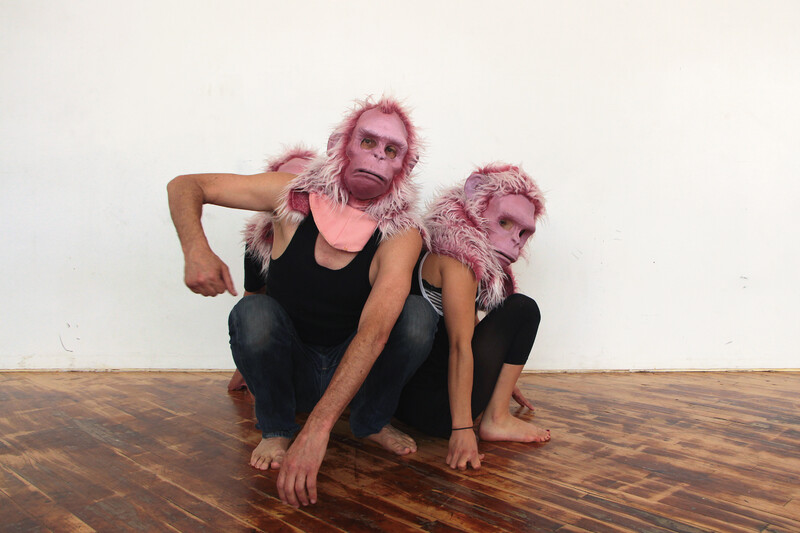Abbas Akhavan's practice ranges from site-specific ephemeral installations to drawing, video, and performance. The domestic sphere, as a forked space between hospitality and hostility, has been an ongoing area of research in Akhavan’s work. More recent works have shifted focus, wandering into spaces just outside the home—the garden, the backyard, and other domesticated landscapes. Akhavan is the recipient of the Kunstpreis Berlin (2012), the Abraaj Group Art Prize (2014), and the Sobey Art Award (2015).
Mitchell Akiyama is a Toronto-based artist, scholar, and composer. His eclectic body of work includes objects and installations that trouble received ideas about perception and sensory experience; writings about contemporary art, animals, and cities; along with many albums of music and scores for film and dance. He holds a PhD in communications from McGill University and an MFA from Concordia University and is currently a SSRHC Postdoctoral Fellow at York University’s Sensorium Centre for Digital Arts & Technology.
Stefan Dolgert is Assistant Professor of Political Science at Brock University, where he writes and teaches on democratic theory, critical animal studies, posthumanism, and ancient Greek political thought. He is currently finishing a manuscript on the rich tradition of non-anthropocentric thought in ancient Greece.
Liz Marshall is a Toronto-based documentary filmmaker (writer, director, producer), television director, and Impact consultant. She is known for her award-winning feature length documentaries Water On The Table (2010) and The Ghosts In Our Machine (2013). Both films pose significant questions about our human relationship to the natural world, and to other species.
Tracy McDonald is an associate professor of history at McMaster University in Hamilton, Ontario. She specializes in Russian and Soviet History and her first monograph was entitled Face to the Village: The Riazan Countryside Under Soviet Rule, 1921-1930. She is currently working on issues of animal capture, trade, and captivity in the USSR.
Judith A. Nicholson is an Associate Professor of Communication Studies at Wilfrid Laurier University. She researches and teaches about mediated mobilities and about human-animal nonverbal interactions. She is co-editor of a Spring 2016 special issue on "Race and the Politics of Mobility" for Transfers: Interdisciplinary Journal of Mobility Studies.
Erika Ritter is a writer in several genres. Published works include: a play, Automatic Pilot; a novel, The Hidden Life of Humans; and a non-fiction book, The Dog by the Cradle, The Serpent Beneath: Some Paradoxes of Human-Animal Relationships. As well, she worked for three decades as a host and contributor on numerous CBC Radio programs.
MH Tse, LLB (Osgoode), LLM (Toronto), LLM candidate (Harvard), is conducting research on the concept of dignity, and the recognition of moral and legal personhood for both animals and human beings. She has served as legal counsel for the Federal Department of Justice in Toronto since 1998, in the areas of regulatory negligence and constitutional law.
Philip Goodman received his PhD in 2010 from the University of California, Irvine, in Criminology, Law and Society. Earlier that same year, he started as an Assistant Professor of Sociology at the University of Toronto, Mississauga. In 2017, he received tenure and was promoted to Associate Professor. Goodman uses prisons and punishment—and crime and law, more generally—as lenses through which to consider questions of inequality, penal politics, and the micro-dynamics of everyday life. At the heart of his scholarship is an attempt to ask how and why punishment changes over time, why it varies across place, and how it is experienced today.
Brett Story is a filmmaker and writer based in Toronto. Her films have screened internationally at festivals such as CPH-DOX, the Viennale, SXSW, True/False, Hot Docs, and Sheffield Doc/Fest. Her feature films include 2016’s award-winning The Prison in Twelve Landscapes and 2019’s The Hottest August. Brett is the author of the book Prison Land (2019) and co-editor of the forthcoming volume, Digital Life in the Global City. She has held fellowships from the Guggenheim Foundation and the Sundance Documentary Institute, and was named one of Variety’s 10 Documentary Filmmakers to Watch in 2019. Brett holds a PhD in geography from the University of Toronto and is currently an Assistant Professor in the School of Image Arts at Ryerson University.
Emily Mast (born in Akron, Ohio, 1976) recently staged a solo “choreographed exhibition” called Missing Missing at La Ferme du Buisson in Noisiel, France, and an eighteen-part roving procession of performances based on the poetry of Joan Brossa at the Los Angeles County Museum of Art (LACMA). In addition, her video, installation, and performance work was part of the Hammer Museum’s Made in L.A. Biennial (2014). Mast’s performances have been exhibited at venues including: China Art Objects Galleries, Los Angeles (2015); Mona Bismarck American Center, Paris (2015); Silencio, Paris (2015); Night Gallery, Los Angeles (2014); Robert Rauschenberg Foundation Project Space, New York (2013); Public Fiction, Los Angeles (2012); REDCAT, Los Angeles (2012); MUHKA, Antwerp (2011); Human Resources, Los Angeles (2010); and Performa, New York (2009). Mast has received numerous awards including a Harpo Foundation Grant (2013); Center for Cultural Innovation Investing in Artists Grant (2013); Franklin Furnace Fund Grant (2013); and a California Community Foundation Fellowship (2012). In 2009 Mast graduated with a Masters in Fine Arts from the University of Southern California and has been an artist-in-residence at the Skowhegan School of Painting and Sculpture; the Headlands Center for the Arts in Sausalito; and Yaddo in Saratoga Springs.
kumari giles is a multi-disciplinary artist, movement storyteller, curator, and producer. They are committed to carving space in performance to showcase the brilliance of people who are not typically valued in the performing arts including queer, gender non-conforming, trans, disabled, Deaf and people of colour. They are part of Unapologetic Burlesque, ILL NANA/DiverseCity Dance Company, and have been in numerous theatre and multidisciplinary shows as an independent performer, producer, and curator.
Andrea Spaziani is a Canadian choreographer, performer, and MFA candidate at the Transart Institute (Berlin/New York). She’s interested in writing technologies related to perception of the present body and its movement. Recent works have been presented at the Judson Gym (NYC), Flowchart (Toronto), and her trio Rafters for Audio Guides, produced by Project Humanity. She is currently collaborating with Alicia Grant on the experimental dance documentary Aggro Infinitum, and performance work Chronic Need. She is curating SPACEBODIES II for the Transart Triennale on Aug 6th at Uferstudios in Berlin (GE), and is a 2016-17 artist in residence at HEIMA in Seyðisfjörður, Iceland. Recent publications include Exiting, Re-Existing, and an article in The Swedish Dance History, edited by Mårten Spångberg.




